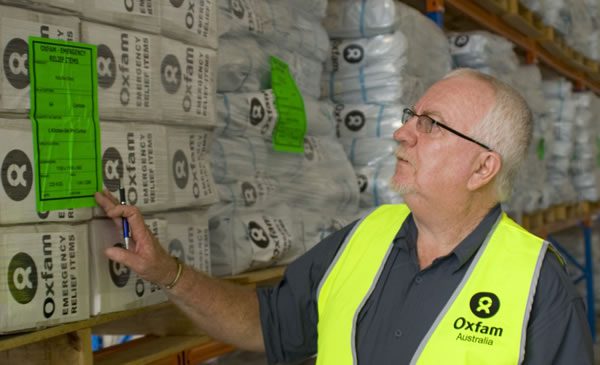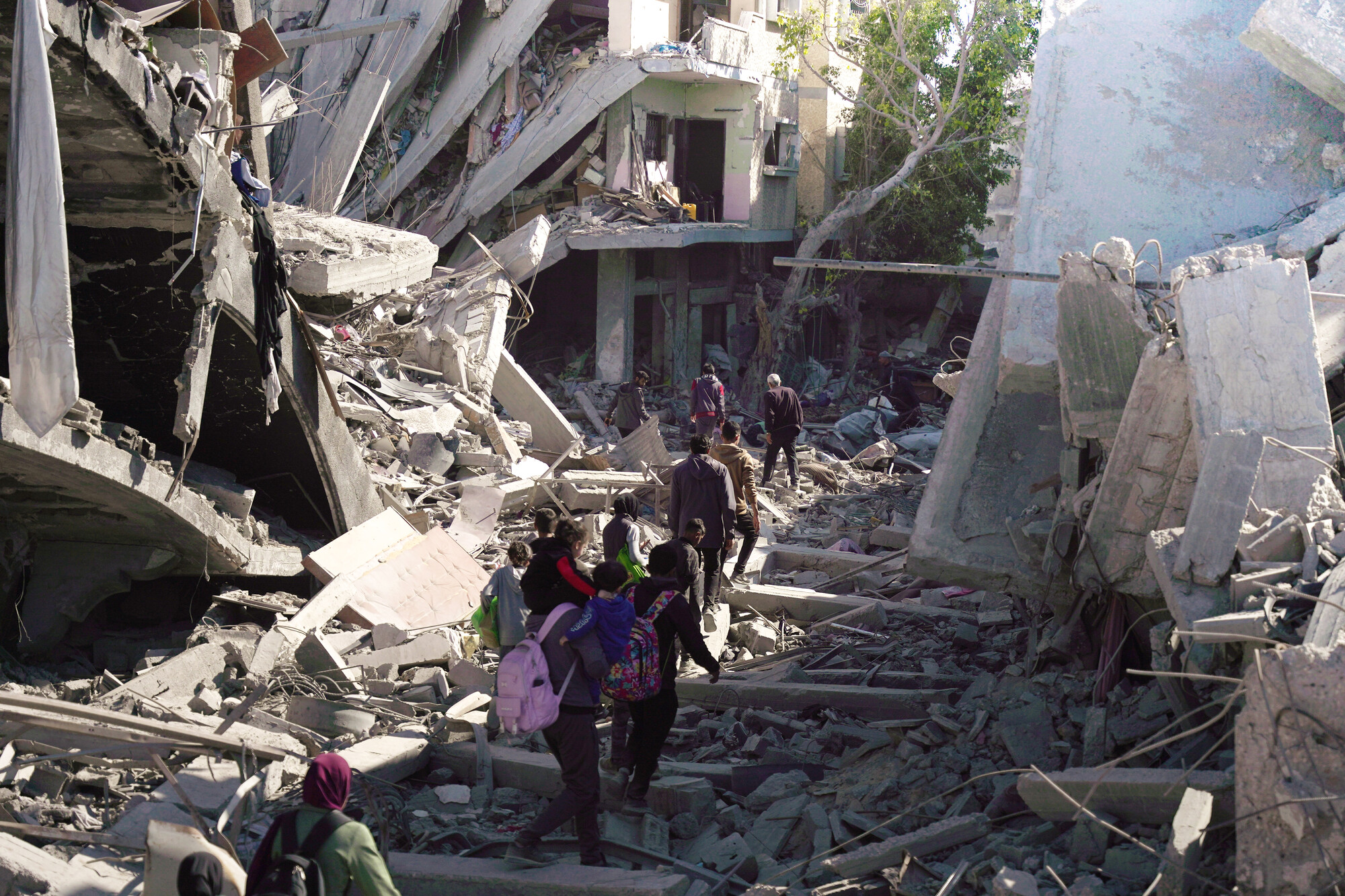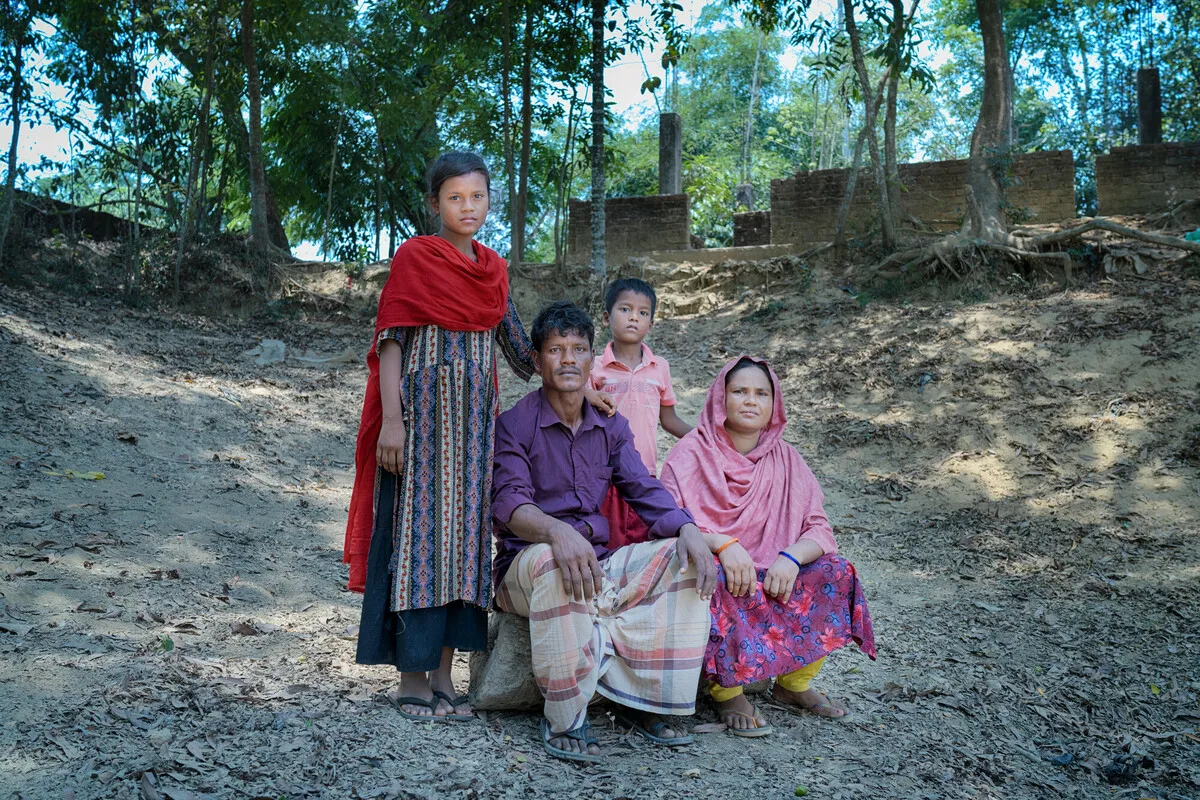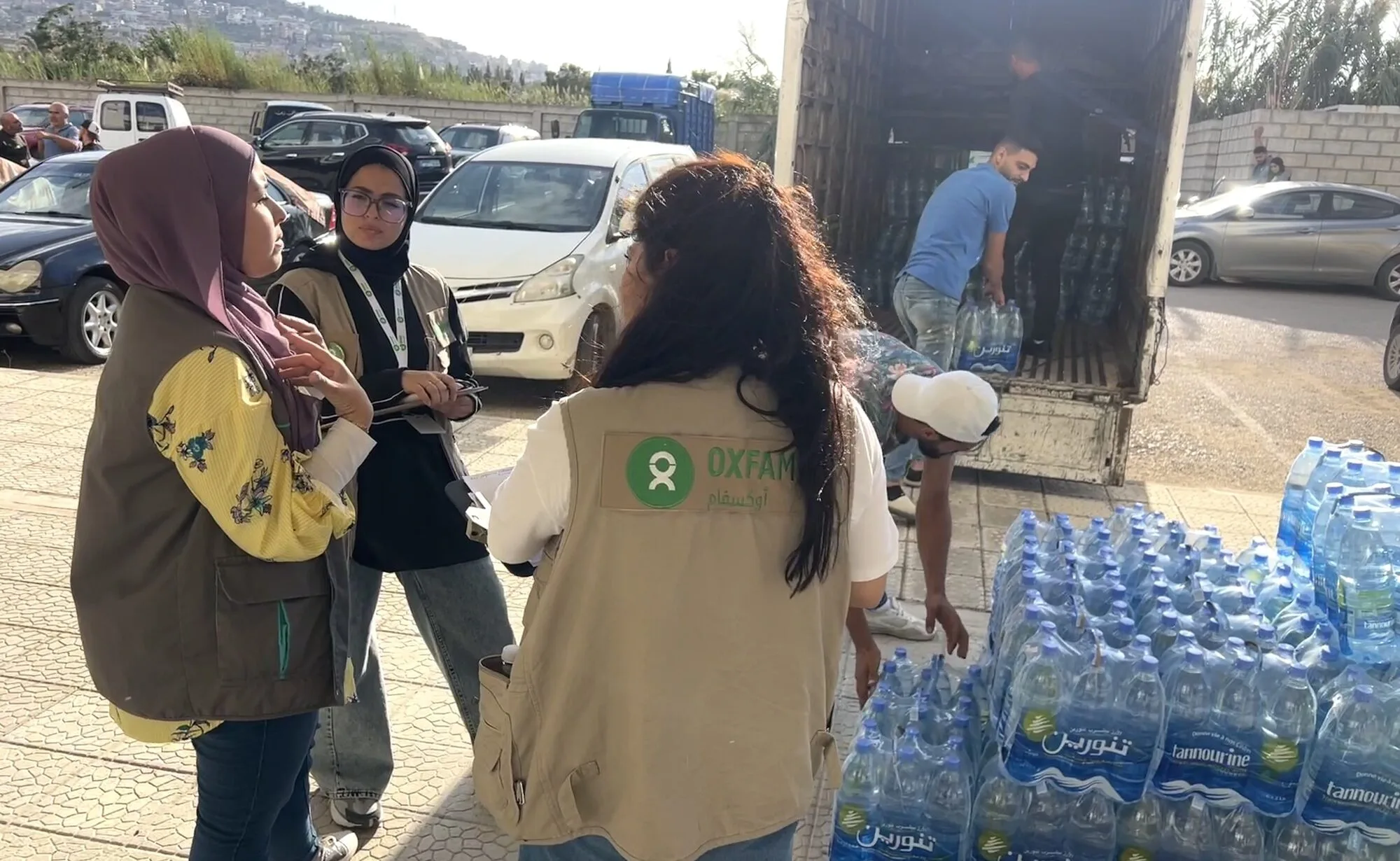Oxfam Australia Logistics Advisor Graham Kenna checks stock in the new emergency supply chain warehouse in Brisbane. Photo: Ronnie Wright/OxfamAUS
Australia’s three largest aid agencies and the Australian Government have joined forces to open an emergency supplies warehouse in Brisbane to speed up disaster response.
When a disaster strikes a remote community, every minute counts. In the wake of a cyclone or tsunami, the injured and displaced urgently need shelter, medicines and sources of clean food and water. Delays mean the spread of killer diseases that can claim more lives than the initial crisis.
Oxfam Australia’s emergencies team is on the front-line in these crucial disaster response missions and is now taking part in a ground-breaking project, teaming up with other aid agencies to dramatically improve the speed with which Australia responds when its neighbours in the Pacific, Asia and Southern Africa are in need.
The team is working with AusAID, Australian Red Cross and World Vision to establish a new emergency supply chain warehouse in Brisbane in an unprecedented act of cooperation that looks set to become a template for aid projects elsewhere.
The huge 11,000-cubic-metre warehouse can hold about 100 tonnes or up to 1,200 pallets of emergency aid supplies such as tarpaulins, cooking sets, chemically impregnated mosquito nets, water purification tablets, buckets and jerry cans.
Oxfam Australia logistics adviser Graham Kenna said the warehouse would help save lives, by ensuring that aid could reach disaster-affected communities in the Pacific within hours instead of days. Sourcing specialised emergency relief items from overseas can take weeks, so having a stockpile to draw on quickly is crucial. In the past, aid agencies have had to transport items from AusAID stockpiles in Sydney to Brisbane and then on to the stricken communities in the Pacific that need them – a process that could take days.
“Now that we’ve got stocks in Brisbane, aircraft can be loaded within three hours’ notification of a disaster,” Graham said.
“The sooner we get things like shelter materials, mosquito nets and temporary latrines in there the better chance we have of saving people from dying of dengue fever and malaria.”
Graham’s logistics team is part of Oxfam Australia’s rapid response unit, tasked with moving fast to bring aid and support to shocked communities that have lost their homes and livelihoods to cyclones, floods, tsunamis, volcanoes, earthquakes and conflict.
“It is simple stuff we are giving to them but it is allowing them to take that respite and reevaluate where they go from there,” Graham said.
“When we have got them as comfortable as they can be and as safe from disease as they can be, that is when our organisation and others move in with more permanent remedies to their issues.”
AusAID, the Australian Government’s overseas aid program, is paying for the rent and operation of the warehouse, with transportation and staff to be on standby 24 hours a day, seven days a week.
Working together on the warehouse project not only speeds up the aid agencies’ responses to disasters, it lowers the cost of emergency response, meaning donors’ dollars go further in helping those most in need.
The three aid agencies can bulk purchase items together to get better prices and potentially share the cost of chartering planes to deliver the aid.
Oxfam has stores in the Solomon Islands, Papua New Guinea and Timor-Leste where it stockpiles aid for an even faster response to disasters. Graham said the agency has had approaches about granting access to other aid organisations, in line with the Brisbane model, and was looking to expand the concept to other areas.
Author: Alex Wilson
Take action
Help support our emergency work by donating to our International Crisis Fund.



